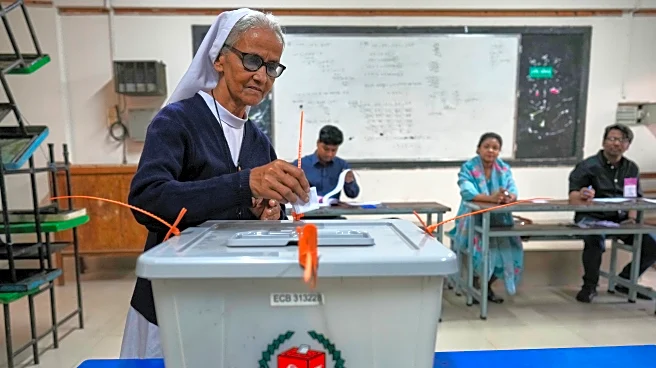What's Happening?
The Prime Minister's Office has confirmed the return of the body of Lior Rodaif, an abducted Israeli soldier, to Israel. Rodaif was identified at the Forensic Institute, and his family has been informed
of his return. The Israeli government expressed its condolences to the Rodaif family and other families of hostages who have perished. Rodaif was abducted from his home on October 7, and his family was informed in May 2024 that he had been murdered during a surprise attack, with his body taken to Gaza. The government emphasized its commitment to ensuring the return of all hostages, urging the Hamas terror organization to fulfill its commitments to mediators.
Why It's Important?
The return of Lior Rodaif's body marks a significant moment for his family and the Israeli government, highlighting the ongoing challenges in dealing with hostage situations involving terrorist organizations. This development underscores the complexities of international negotiations and the emotional toll on families affected by such incidents. The Israeli government's firm stance on the return of hostages reflects broader security and diplomatic efforts to address terrorism and protect its citizens. The situation also highlights the importance of international mediation in resolving conflicts and ensuring humanitarian outcomes.
What's Next?
The Israeli government is expected to continue its efforts to secure the return of all hostages, maintaining pressure on Hamas to adhere to agreements made with mediators. This may involve further diplomatic negotiations and potential military or strategic actions to ensure compliance. The situation could lead to increased international involvement, with mediators playing a crucial role in facilitating dialogue and resolution. The government’s commitment to not compromising on the return of hostages suggests ongoing vigilance and potential escalation if agreements are not honored.
Beyond the Headlines
The return of Lior Rodaif's body raises ethical and legal questions about the treatment of hostages and the responsibilities of terrorist organizations under international law. It also highlights the cultural and emotional impact on families and communities affected by such tragedies. Long-term implications may include shifts in Israeli policy towards hostage situations and increased international pressure on groups like Hamas to comply with humanitarian standards. The event may also influence public opinion and government policy regarding security and diplomatic strategies.









